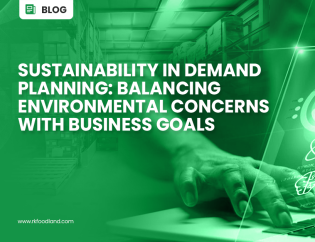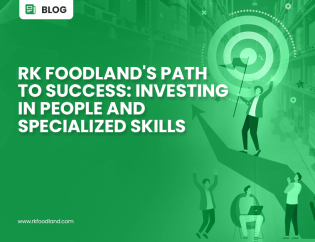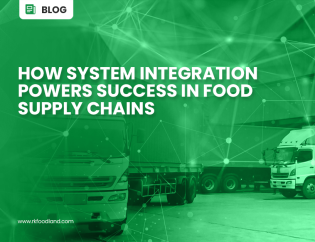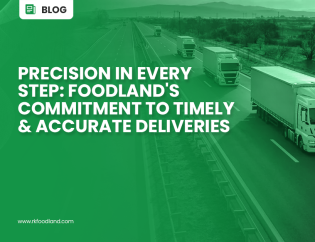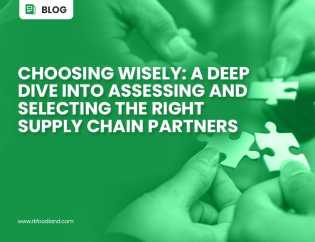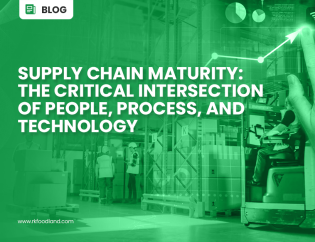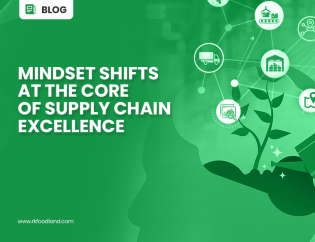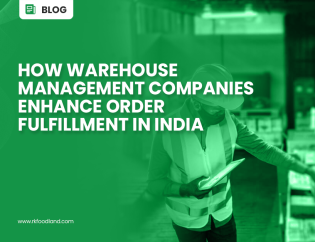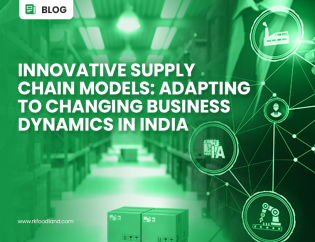
[Avg. Read Time < 5 mins]
The food industry is facing a crucial juncture as consumers grow increasingly knowledgeable and regulations become more stringent. Overlooking safety and quality within the food supply chain carries grave implications for consumers, jeopardizing their well-being, compromising the nutritional content of their meals, enabling fraudulent practices, and eroding their confidence. Merely prioritizing efficiency and cost-effectiveness is no longer satisfactory. Safety and quality in the food supply chain have become crucial. This shift is driven by a new generation of discerning consumers who demand transparency, accountability, and sustainability. In this blog, we delve into strategies for building a strong supply chain. Explore the rising importance of putting consumers first, the power of staying ahead of risks, and the benefits of forming strategic partnerships.
Consumer-Centric Supply Chain
Growing consumer awareness about food safety and quality assurance is transforming the supply chain from a background operation into a central factor in purchasing decisions. Today’s consumers are informed, discerning, and demand transparency as 75% of consumers would switch from a brand that provides more in-depth product information – beyond what’s provided on the label. Consumers are willing to reward brands that can meet these expectations with their loyalty and advocacy, underscoring the need for a consumer-centric supply chain. To build a supply chain that mirrors consumer expectations, companies must prioritize traceability, regular audits, and transparent reporting.
1. Implementing traceability systems allows consumers to have confidence in the responsible sourcing and production of the products they purchase. This involves tracking and documenting the journey of a product throughout the supply chain, from its origin to the point of sale. Strategies for effective traceability systems include:
- Adopting technology solutions like blockchain, RFID (Radio Frequency Identification), or QR codes to enable real-time tracking and tracing of products.
- Collaborating with suppliers to ensure accurate and comprehensive documentation of product information, including origin, ingredients, and production processes.
- Engaging in third-party certifications or audits to validate and verify the integrity of the traceability system.
2. Conducting regular audits is essential to ensure that every stage of the supply chain adheres to the highest safety and quality standards. This involves thorough inspections, assessments, and evaluations of processes, facilities, and practices. Strategies for effective regular audits include:
- Developing a robust audit framework with clear guidelines, checklists, and standards to assess various aspects of the supply chain.
- Engaging qualified and independent auditors to perform objective and unbiased evaluations.
- Implementing corrective action plans based on audit findings to address any identified gaps or non-compliance.
3. Transparent reporting acts as proof of a brand’s commitment to maintaining safety and quality standards, fostering trust among consumers. This involves openly sharing information about the supply chain practices, quality control measures, and compliance with regulations. Strategies for effective transparent reporting include:
- Establishing clear communication channels to provide accessible and accurate information to consumers regarding sourcing, production, and product integrity.
- Publishing sustainability reports, product testing results, and certifications to demonstrate adherence to safety and quality standards.
- Encouraging consumer feedback and addressing concerns promptly and transparently to maintain open dialogue and build trust.
Moreover, merely integrating sustainability practices into the supply chain is not enough. It has become a strategic business decision, a way to align with the values of a large and growing segment of consumers who prioritize environmental stewardship. Through these measures, businesses can create a supply chain that is not just efficient and compliant, but also responsive and attuned to the needs of the consumers. This proactive shift from risk to resilience not only protects brands but also strengthens their bond with consumers, fostering trust, loyalty, and driving positive change in the food industry.
Proactive Risk Management
It is no longer about responding to issues as they occur but foreseeing them and implementing measures to either prevent or mitigate their impact. Proactive risk management is becoming a cornerstone strategy for food businesses aiming to build a resilient supply chain. Central to this approach is predictive analysis, a powerful tool that aids in the early identification of potential risks, facilitating preventive actions and minimizing disruptions. However, to truly master proactive risk management, businesses must adopt an integrated approach, implementing systems that provide a holistic view of the entire supply chain. This enables CXOs to not just pinpoint potential risks but to understand their interconnected nature, resulting in more effective risk mitigation strategies. MHI Annual Industry Survey reports that 30% of supply chain managers use predictive analytics and that of the companies not using it, 57% plan to begin in the next five years. Methods such as predictive analytics and scenario planning are invaluable for spotting potential threats before they escalate. By modelling various risk scenarios, businesses can equip themselves with robust response strategies, ensuring they are never caught unprepared. Moreover, creating resilient supply chains goes beyond early risk identification and response planning; it also involves developing systems & processes robust enough to withstand shocks and stresses. This might include diversifying suppliers to avoid dependency on a single source or stockpiling essential supplies to safeguard against unforeseen disruptions. In sum, proactive risk management is about shifting from a reactive stance to a strategic, anticipatory one. In the volatile world of the food industry, this is not just advantageous—it’s essential.
Collaboration and Partnerships
In the quest for resilience in the food supply chain, the power of collaboration and partnerships cannot be underestimated. By fostering a culture of cooperation across different stages of the supply chain, businesses can unlock innovative solutions to common problems, thereby enhancing resilience. When entities within the supply chain collaborate, they pool their expertise and resources, creating a synergy that can address challenges more effectively and efficiently than isolated efforts. 92% of supply chain professionals surveyed by Aptean agreed strategic partnerships play a crucial role in bolstering supply chain resilience by providing rapid problem resolution. They bring together diverse skills and capabilities, providing businesses with a broader set of resources to tackle challenges. These partnerships can also build redundancy into the supply chain, providing alternatives and backup options that can be invaluable in times of disruptions. Moreover, collaboration isn’t just about pooling resources—it’s about leveraging collective intelligence for better problem-solving and innovation. This collective intelligence can lead to improved processes, more sustainable practices, and ultimately, a more resilient supply chain.
In conclusion, the ever-evolving landscape of the food industry, the transition from risk to resilience is not only a strategic choice but a necessity for Food Businesses. By prioritizing safety and quality at every stage of the supply chain, businesses can build an assured food supply chain that meets consumer demands, earns trust, and fosters positive change. Now is the time to embrace this transformative journey. As leaders in the food business industry, you possess the ability to drive the direction of your enterprise. By prioritizing the enhancement of safety and quality procedures within your food supply chains, you can gain a competitive edge and reinforce your standing as a pioneer in your field. To support you in this endeavour, RK Foodland experts are here to provide the guidance and expertise needed to achieve supply chain resilience. Our experienced team understands the intricacies of the food industry and can help you navigate the complex terrain of supply chain management. So, seize the opportunity to pioneer resilience in your food supply chain. Let safety and quality be the foundation on which you build your success.
Connect with RK Foodland experts today and embark on a transformative journey towards a resilient future.
Related Content | Foodland’s Resources
Fixing The 5 Big Problems In The Food Supply Chain
Three Ways to Ensure Food Safety During Supply Chain Disruptions
Enabling Predictive Food Safety and Quality Management
